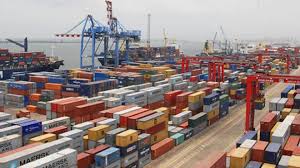Africa should seize the fast-developing digital market space so as to boost access to goods and services across the continent, Monique Nsanzabaganwa, deputy chairperson of the African Union (AU) Commission..
The AU Commission deputy chief made the remarks on Tuesday as the African continent joined the global community in commemorating the 39th World Consumer Rights Day annually marked on March 15 under the theme “Fair Digital Finance.”
“Seizing the fast-developing digital market space is particularly important in our African context where access to countless goods and services remains restricted for the vast majority,” Nsanzabaganwa said in her statement concerning the World Consumer Rights Day.
Noting that the African continent has an internet penetration rate of 43 percent, the deputy chief said innovation is transforming how people conduct financial transactions and live their lives throughout the continent, emphasizing that digital finance and its implication on financial inclusion and financial stability is crucial for development in Africa.
Nsanzabaganwa noted that the African continent is home to a growing number of digital financial services deployments.
The deputy chairperson warned that digital finance consumers are increasingly exposed to scams, frauds, phishing and data malpractices, which is further exacerbated by the COVID-19 pandemic.
“It is necessary to explore solutions that will mitigate these threats while still making digital finance attractive, as governments seek to expand access to digital banking services,” said Nsanzabaganwa, stressing it is vital to acknowledge the risks and enact strict consumer protections, especially for the most vulnerable people, such as those with limited educational attainment or financial experience.
She said Africa’s burgeoning youth population is integrating with the ever-changing digital world and it is necessary for the continent’s decision-makers to harness this exposure in a way that is optimal for the continent’s youth.
Nsanzabaganwa, however, stressed that African women are still less likely than men to have basic formal financial services.
“Mobile money and the ability to easily and safely receive money from social networks has been found to be a drawing factor for them and thus helping to shrink the gender differences across the continent,” she said.
Last week, the AU launched the Women and Youth Financial and Economic Inclusion (WYFEI 2030) initiative, which is a collective impact approach that seeks to achieve social change in respect of the financial and economic status and participation of women and youth in Africa.
According to Nsanzabaganwa, the success of the initiative relies largely on the strength of digital financial services as well as the importance of making them fair and safe.
MG/abj/APA


